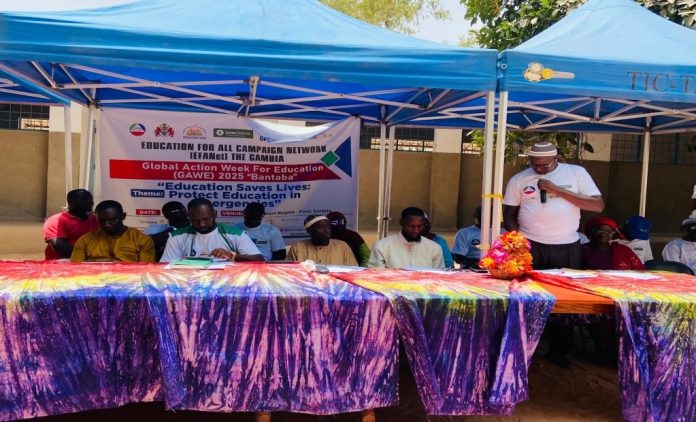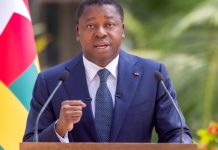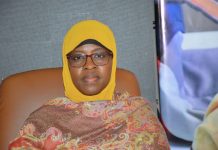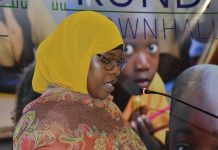By Ndey Sowe
Stakeholders in the education sector have called on the government of the Gambia and members of the international community, to commit to the sustainable financing of education during emergencies, in order to ensure the continuation of learning for those affected, even under the most difficult of conditions.
The concerned stakeholders made this and other calls on Saturday, May 10 2025, during the commemoration of the Global Action Week for Education (GAWE) 2025, held from April 28 to May 5 this year.
Held under the theme: “Education Saved Lives: Protect Education in Emergencies (EiE)” as agreed upon by GCE members during the 2022 World Assembly, the commemoration was held in Somita village in the Foni District of the West Coast Region (WCR) in the form of a “Bantaba”, was organised by the NGO ‘Education For All Campaign Network-The Gambia’ (EFANet).
This year’s GAWE 2025 commemoration also builds on the 2022 commemoration which was themed on: “Protect Education in Emergencies Now!” The 2022 commemoration theme urged governments and development partners to ensure inclusive planning and sustainable financing for the realisation of the right to education during emergencies.
According to reports, there have been devastating impacts of conflicts and disasters on education worldwide; accordingly, the attacks on education due to conflicts have increased in recent years, and the situation for education due to the current and impending climate crisis is alarming. Therefore, GCE acknowledges the global commitment to protect and fulfil the right to education during emergencies.
However, the concerned stakeholders call for more political will and strategic action towards the realization of these commitments urgently.
Kebba Omar Jarjusey, the national coordinator of EFANet said in Africa, GAWE is being observed at the moment when conflicts and other emergency situations are depriving millions of children and youth of their right to education.
“In the Gambia, in January 2022, at least three Schools in the Foni District were closed amid reports of “heavy gunshots” in Cassamance, in the southern part of Senegal, which is just a stone’s throw across the border. The most affected Schools during this period were Jannack Lower Basic School; Tamba Kunda Basic Cycle and Bunuborr Lower Basic Schools respectively. All the affected Schools were not in operation, and the School children were asked to go home. Teachers also ran for their lives because the Senegalese forces stationed in Cassamance were reported to be firing gunshots from across the border,” Mr Jarjusey said; that this forced many Schools near the Gambia-Senegal border in Foni to close causing many students to be internally displaced because of the clashes between the MFDC and Senegalese soldiers.
Mr. Jarjusey therefore urged for the government of The Gambia, the Africa Union and other institutions to focus their attention towards saving lives, defending and protecting education during emergencies and in particular, ensuring safe, inclusive and continuous learning.
Agi Awa Sillah, the vice chairperson of EFANet said the Global Action Week for Education is indeed a global campaign strategy that is commemorated yearly to remind the duty bearers and educational institutions, to ensure their commitments and obligations by making education available, accessible, affordable, acceptable and qualitative for all.
“EFANet Gambia accordingly embraces and will continue to defend the consolidated position of its partners in every bit, to ensure that education is protected during all emergencies and risky situations,” she asserted.
Pa Daniel Mendy, who spoke on behalf of the Secretary General of the Gambia Teachers’ Union (GTU), said he strongly believes that education must be prioritized in all phases of emergency preparedness, response and recovery. Mr Mendy emphasized that teachers must be adequately supported through training in crisis-responsive pedagogy, mental health and psychosocial support, and classroom safety.
“National policies must be inclusive and responsive to the needs of the most vulnerable communities who are disproportionately affected during times of crisis,” Samba Keita, from ChildFund-The Gambia said and urged all stakeholders locally and globally to take concrete steps to protect Schools from being caught in the crossfire of conflicts.
“Schools must remain zones of peace and not targets of war. Let us remember that when we protect education, we protect children and when we invest in learning, we invest in life,” Mr. Keita said.
According to reports from an international NGO, an estimated 234 million School-aged children and adolescents across 60 countries are affected by crises (50% girls) and need support to access quality education to help them achieve holistic learning outcomes, noting that approximately 50% of crisis-affected children of School going age worldwide, live in Sub-Saharan Africa, with the subregion facing the most complex of challenges in guaranteeing the right to education for every child.
In the same vein, Education in Emergencies (EiE) refers to quality learning opportunities for all ages in situations of crisis, including early childhood education and development; and primary, secondary, non-formal, technical, vocational and adult education, which provides physical, psycho-social and cognitive protection in sustaining and saving lives.






















